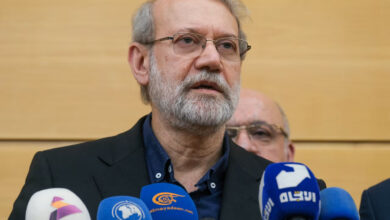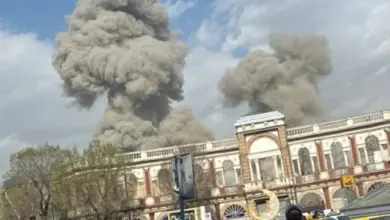For the third day in a row, news about the situation in Libya and Egypt’s Sinai dominates both state-run and privately-owned newspapers.
NTC leader Mustafa Abdel Jalil confirmed that the revolutionaries now have complete control over Muammar Qadhafi’s Bab al-Aziziya compound but are refusing to set a specific date for Libya’s official declaration of a new government, saying that it will only happen after Qadhafi's arrest, according to state-run Al-Ahram’s front page story.
Libya's National Transitional Council (NTC) has put a US$1.7 million bounty on the head of Qadhafi and offered amnesty to his aides, should they turn him in or kill him, Al-Ahram writes. The embattled Libyan president pledged to keep fighting until death or victory, saying that his withdrawal was “tactical," in a phone call aired on Libyan state television channels. Meanwhile, fighting continued between Qadhafi’s loyalist forces and rebels in Tripoli, as well as the city of Sabha, south of Tripoli, and Zuwarah, west of the capital.
Privately-owned papers Al-Shorouk and Al-Dostour and state-run Al-Akhbar also lead with the situation in Libya; their main headlines read, respectively, “The revolutionaries chase Qadhafi 'Zenga Zenga,'” “Qadhafi with seven souls,” and “Wanted dead or alive."
On the other hand, two-month-old, privately-owned Al-Tahrir is the only newspaper concerned with the preliminary results of Israeli Defense Forces' investigation into the recent border raid that left six Egyptian military and security personnel dead.
The results published in Israeli newspaper Yedioth Ahronoth say that at least three of the attackers that killed eight Israelis near Eilat were Egyptian nationals, noting that one of them was a member of an Islamic extremist organization and had escaped prison during last winter’s 18-day uprising. The report also states that videos taken by Israeli planes show that in contrast to Egyptian media reports, Israeli fighter jets avoided shooting at Egyptian jeeps and soldiers.
The report goes on to say that the Egyptian security deaths resulted from confusion with the targets who were positioned near an Egyptian army base close to the border and wore clothing similar to army uniforms. In addition, Tel Aviv’s investigation asserts that three of six victims were actually killed when one suicide bomber blew himself up in North Sinai one day after the Eilat attacks, Al-Tahrir writes.
Al-Tahrir also reports that a protest outside the Israeli Embassy in response to the incident shrank from thousands earlier in the week to a few dozen demonstrators Wednesday.
Al-Shorouk quotes Maspiro Youth Union member Magdy Saber as saying, “The protesters agreed to suspend the sit-in until Friday in order to plan for a million-man protest on Friday with the participation of the biggest number possible of political groups, movements and youth coalitions, who call for the ouster of the Israeli ambassador, the closing of the Israeli Embassy, and the severing of all diplomatic and trading ties with Tel Aviv.”
Al-Tahrir digs into the platform of Jama'a al-Islamiya's Construction and Development Party, which envisions “the Egyptian state with an Islamic, civilized identity, based on Shura and democracy and ensuring freedom for all … a constitutional state is built on institutions and against dictatorship or military or civilian rule, and is not based on theocratic rule.”
The Islamist party accepts the idea of judicial monitoring of elections and aims to end the requirement that half of parliamentary seats go to workers and peasants. Men and women are complementary and each has a role that suits him or her, according to the party platform.
Al-Tahrir runs a lighter story about presidential hopeful Amr Moussa ending his campaign tour Wednesday in Dar al-Salam in southern Cairo by asking one family to have iftar with him.
“I want to eat the same food you are eating,” Moussa reportedly said.




